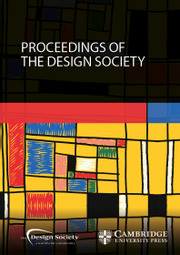No CrossRef data available.
Article contents
INCREASING STUDENT CONFIDENCE THROUGH EXPERIENTIAL DESIGN EXERCISES IN ENGINEERING SCIENCE COURSES
Published online by Cambridge University Press: 19 June 2023
Abstract
This study investigates the impact on student confidence of completing in-lecture engineering design activities focused on the application of specific engineering science topics within a materials engineering course. Many times, engineering science courses are taught with the expectation that the course content can be easily translated by students at a later time to apply in engineering design activities. By measuring student self-reported confidence across several related topics before and after completion of the in-lecture design exercises the impact of the exercises on student confidence has been quantified. On average, students have a lower than desired confidence in applying the specific materials engineering topics to a design problem after completing only the course content on the subject. Following completion of the related seventy-five minute design exercise, student confidence increased by a statistically significant degree. These results suggest that close integration of topical content learning with design application activity may be a useful method to improve engineering student confidence and, by extension, retention.
- Type
- Article
- Information
- Creative Commons
- This is an Open Access article, distributed under the terms of the Creative Commons Attribution-NonCommercial-NoDerivatives licence (http://creativecommons.org/licenses/by-nc-nd/4.0/), which permits non-commercial re-use, distribution, and reproduction in any medium, provided the original work is unaltered and is properly cited. The written permission of Cambridge University Press must be obtained for commercial re-use or in order to create a derivative work.
- Copyright
- The Author(s), 2023. Published by Cambridge University Press




